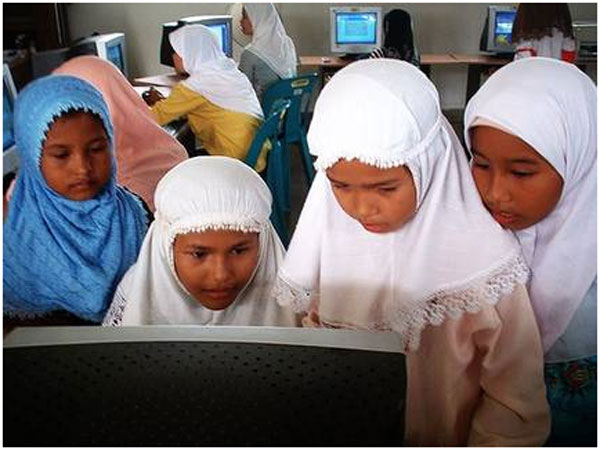



Date:14/06/11
 The United Nations earlier this month released a report declaring the internet access a basic human right where disconnecting people from the Internet may be a violation of human rights and international law.
The United Nations earlier this month released a report declaring the internet access a basic human right where disconnecting people from the Internet may be a violation of human rights and international law.
“Each State should develop a concrete and effective policy, in consultation with individuals from all sections of society, including the private sector and relevant government ministries, to make the Internet widely available, accessible and affordable to all segments of population,” the document stressed.
Internet access, the UN said, shall include both free information flow as well as access to infrastructure—cables, modems, computers and software. The UN encourages States to support initiatives to ensure that online information can be accessed in a meaningful way by all sectors of the population, including persons with disabilities and those of linguistic minorities.
It likewise encouraged states to include Internet literacy skills in school curricula, and support similar learning modules outside of schools. Countries including Estonia, France, Finland and Greece have already made Internet access as a basic right for their citizens.
In Finland, the first country that ruled internet as a legal right, every citizen (approximately five million people) has the right of access to one Mbps broadband, government decreed on July 1st 2010.
Finland’s Ministry of Transport and Communications said that a one-hundred megabit connection would be a legal right by the end of 2015.
UN declares web access as human right
 The United Nations earlier this month released a report declaring the internet access a basic human right where disconnecting people from the Internet may be a violation of human rights and international law.
The United Nations earlier this month released a report declaring the internet access a basic human right where disconnecting people from the Internet may be a violation of human rights and international law. “Each State should develop a concrete and effective policy, in consultation with individuals from all sections of society, including the private sector and relevant government ministries, to make the Internet widely available, accessible and affordable to all segments of population,” the document stressed.
Internet access, the UN said, shall include both free information flow as well as access to infrastructure—cables, modems, computers and software. The UN encourages States to support initiatives to ensure that online information can be accessed in a meaningful way by all sectors of the population, including persons with disabilities and those of linguistic minorities.
It likewise encouraged states to include Internet literacy skills in school curricula, and support similar learning modules outside of schools. Countries including Estonia, France, Finland and Greece have already made Internet access as a basic right for their citizens.
In Finland, the first country that ruled internet as a legal right, every citizen (approximately five million people) has the right of access to one Mbps broadband, government decreed on July 1st 2010.
Finland’s Ministry of Transport and Communications said that a one-hundred megabit connection would be a legal right by the end of 2015.
Views: 3249
©ictnews.az. All rights reserved.Similar news
- 24% of U.S. Adults have made phone calls on the Internet
- UNESCO puts sustainable learning online
- Australia gives incentives for the use of telehealth
- US launches computer programme for poor kids
- Facebook growth slows in stalkerbase heartlands
- One Third of Millionaires Use Social Media
- Facebook Seeks Bigger Role in Software for Mobile Apps
- Icann increases web domain suffixes
- IBM launches new social networking platform for enterprises
- Google Notches One Billion Unique Visitors Per Month
- Internet providers cut international channel renting costs by 60%
- Azerbaijan launches standard time on internet
- Icann launches facility to ease DNSSec adoption
- Social network data mining yields worrying results for traditional media





















